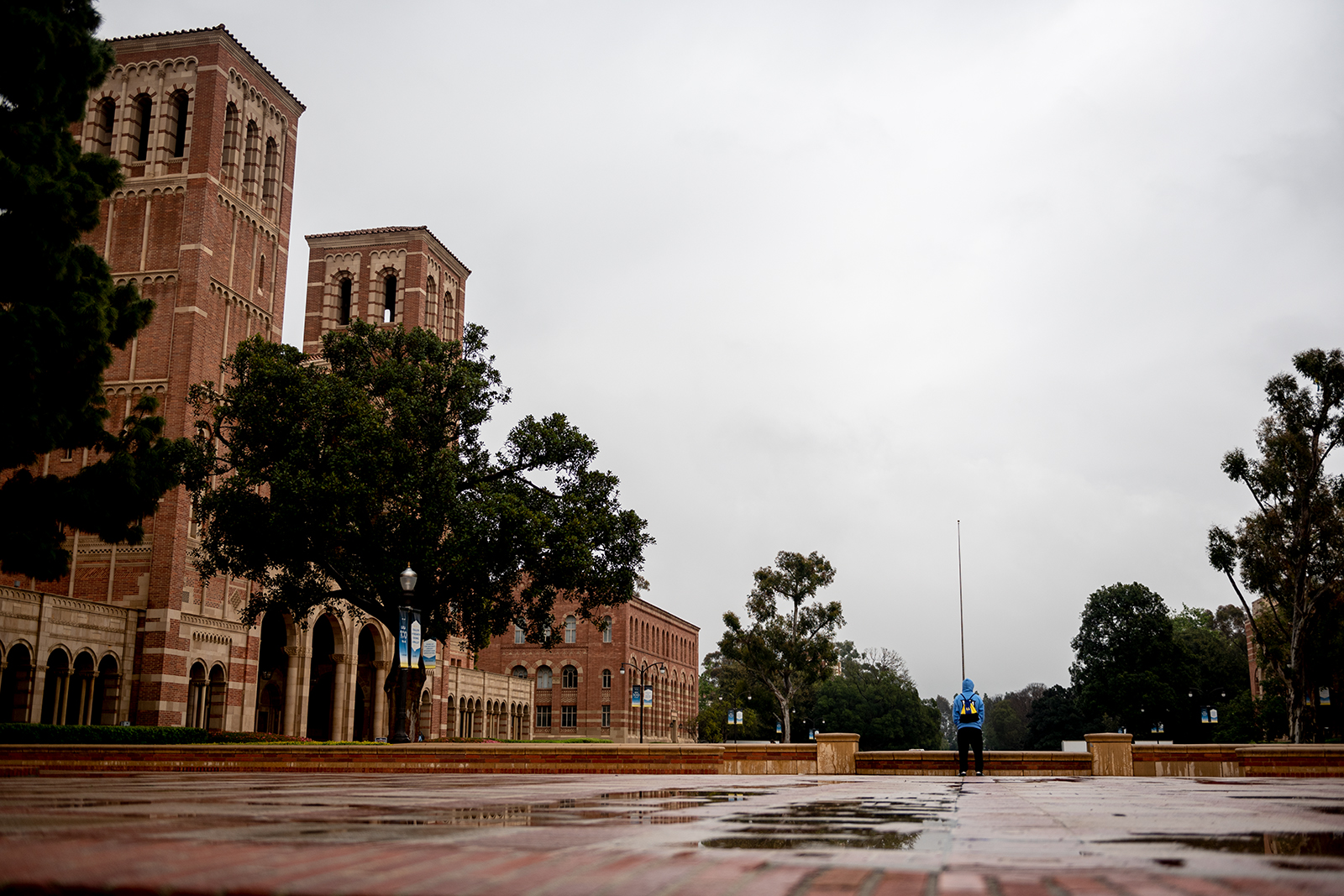UC and UCLA leadership in discussion regarding fall quarter plans

UCLA has already moved spring quarter and summer session A online. However, no decisions have been made about fall quarter yet. (Niveda Tennety/Assistant Photo editor)
By Megana Sekar
April 24, 2020 5:18 p.m.
This post was updated April 25 at 12:50 p.m.
University of California officials have not decided whether to move fall quarter instruction online, as universities across the country begin to create fall contingency plans.
Despite the uncertainty for fall, UCLA has moved all of summer session A and its pre-college programs online. Certain departments have also moved summer session C online, but no decision has been reached about fall quarter, according to multiple administrators and student government representatives.
The UC is using Gov. Gavin Newsom’s six criteria for resuming normal operations in discussions about reopening campuses, said UC spokesperson Sarah McBride. The criteria include the availability of widespread testing and contact tracing, the ability of hospitals to handle patient surges and the ability of institutions and facilities to support physical distancing.
McBride said that while the UC will provide systemwide guidance, campus leadership and local health officials will determine how individual campuses reopen.
During a livestream town hall, Chancellor Carol Christ of UC Berkeley said she thinks fall semester is likely to be a hybrid of virtual and on-site instruction. She added she thinks social distancing and mask requirements may still be in place come fall.
Christ added that the extent to which the campus can return to normal operations will be impacted by the decisions made by public health departments and the federal government.
Chancellor Pradeep Khosla of UC San Diego told the San Diego Union-Tribune he thinks continuing virtual classes is within the realm of possibility. The campus has created a task force to work with public health officials to make a decision.
No fall 2020 decisions have been made yet for UCLA, said spokesperson Ricardo Vazquez. Nevertheless, undergraduate student leaders said they have been included in discussions about the possibility of remote learning in the fall.
Naomi Riley, the Academic Affairs commissioner for the Undergraduate Students Association Council, said she has met with Executive Vice Chancellor and Provost Emily Carter, Administrative Vice Chancellor Michael Beck and the Academic Senate about the impact of the pandemic on student learning. She added that travel restrictions, especially for incoming and current international students, will likely play a role in the decision.
“For some international students who need visas, the earliest they could get those is November,” said Riley, a third-year political science student.
Michael Meranze, chair of the UCLA Academic Senate and a history professor, said the senate will make recommendations about grading, course enrollment and assessments to faculty once administration makes a decision.
The senate has not yet determined whether they will continue the current suspension of normal regulations for Pass/No Pass classes in summer or fall, Meranze said.
During normal quarters, students can typically only take one class P/NP, and most classes that fulfill major requirements must be taken for a letter grade. Because of the coronavirus pandemic, students can take unlimited classes P/NP and academic departments are encouraged to allow major requirements to be taken P/NP.
USAC President Robert Watson said an important factor in having on-site classes is UCLA’s ability to accommodate public health guidelines such as physical distancing.
“We have to consider social distancing possibilities, like if it is actually possible to hold these 200 person classes,” said Watson, a fourth-year political science student. “We don’t know what that will look like in late September.”
Watson and Riley said they think initially students were not included in important discussions surrounding COVID-19, such as winter quarter finals policies and 2020 commencement, however, the administration has since become more inclusive. Both Watson and Riley have been included in a task force with the vice chancellors to make a decision about fall quarter.
Riley added she thinks misinformation and uncertainty during the end of winter quarter led to stress among the student body, which could have been avoided by having student leaders at the table.
“There is a system of shared governance in place, and I hope that when we look back at this (crisis) we see a student government, administration and Academic Senate that did everything it could,” she said.

